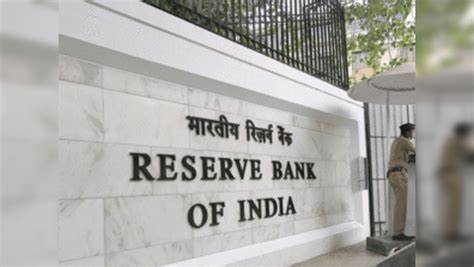Economists Warn Against RBI Rate Cuts Amid Rising Inflation
As India’s retail inflation rate surged to a 14-month high of 6.2% in October, economists have raised concerns about the potential impact of an interest rate cut by the Reserve Bank of India (RBI). With inflation remaining well above the central bank’s target of 4%, experts are cautioning that a premature reduction in the repo rate could undermine efforts to control rising prices, despite mounting political pressure for lower borrowing costs.
The debate over whether the RBI should cut rates has intensified ahead of its upcoming monetary policy meeting in December. On one side of the argument, government officials, including Finance Minister Nirmala Sitharaman, have called for lower interest rates to stimulate economic growth. Speaking at the 11th SBI Banking and Economics Conclave in mid-November, Sitharaman urged banks to reduce their lending rates, describing the current borrowing costs as “stressful” for businesses. Commerce Minister Piyush Goyal also echoed these sentiments, suggesting that a rate cut would help boost industrial activity and create jobs by making borrowing more affordable.
However, many economists are urging caution, warning that a reduction in rates could exacerbate inflationary pressures. M. Govinda Rao, a renowned economist and former member of the Economic Advisory Council to the Prime Minister, emphasized the importance of maintaining elevated interest rates to control inflation. According to Rao, India’s large fiscal deficit necessitates a cautious monetary policy, as taming inflation requires the RBI to remain vigilant. With inflation primarily driven by rising food prices, especially vegetables, Rao argues that any move to reduce interest rates would risk reversing the progress made in curbing inflation.
The Indian economy has been grappling with persistent inflation, which remains above the RBI’s desired target range. Food inflation has been a key concern, with vegetable prices seeing significant increases. The central bank has maintained the repo rate at 6.50% for the past ten consecutive policy reviews, signaling its commitment to controlling inflation. Economists warn that lowering interest rates in the face of such inflation could lead to an even sharper rise in prices, eroding the purchasing power of consumers and potentially destabilizing the economy.
Professor Lekha Chakraborty, a distinguished economist from the National Institute of Public Finance and Policy (NIPFP), shared similar concerns. While she acknowledges the government’s desire to lower interest rates to spur economic activity, she believes the RBI’s neutral stance—balancing both price stability and growth—means that a rate cut is unlikely in the short term. Chakraborty also pointed out that the RBI could look at global trends, particularly the policies of the US Federal Reserve, before making any significant changes to India’s interest rates. However, she believes the RBI will be cautious, given the country’s ongoing inflationary pressures.
The RBI’s role in India’s economic stability cannot be overstated. As the central authority that controls the cost of funds through the repo rate, the RBI’s decisions directly impact borrowing costs, investment activity, and the overall economic environment. Higher interest rates tend to curb inflation by discouraging excessive borrowing and spending, while lower rates can stimulate economic growth by making credit cheaper. However, cutting rates in a period of high inflation can be a double-edged sword—it may boost growth in the short term but also risk exacerbating price pressures in the long run.
The upcoming RBI monetary policy meeting is set to be a defining moment for India’s economic trajectory. While there is increasing political pressure for a rate cut to boost economic growth, the central bank faces the complex task of balancing inflation control with the need for stimulus. As inflation continues to outpace expectations, the RBI’s cautious approach to rate cuts remains a critical element in safeguarding long-term economic stability. With global economic trends also playing a role, all eyes will be on the RBI’s next move as it navigates these challenges.

